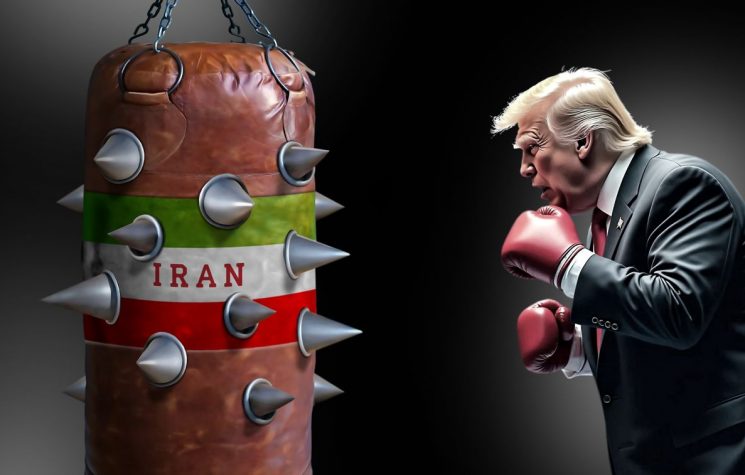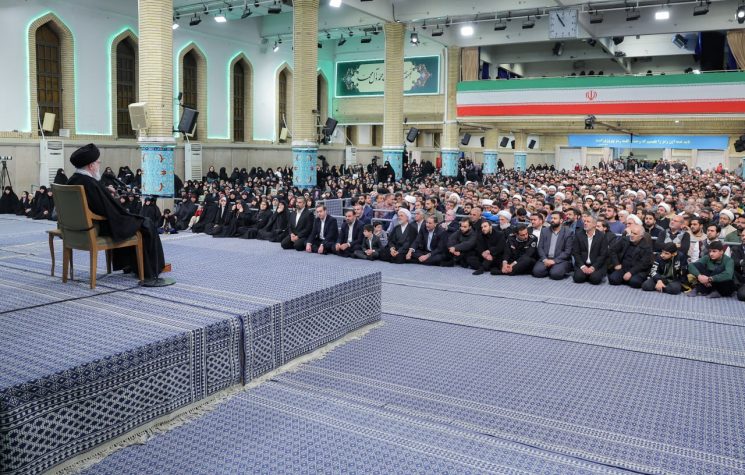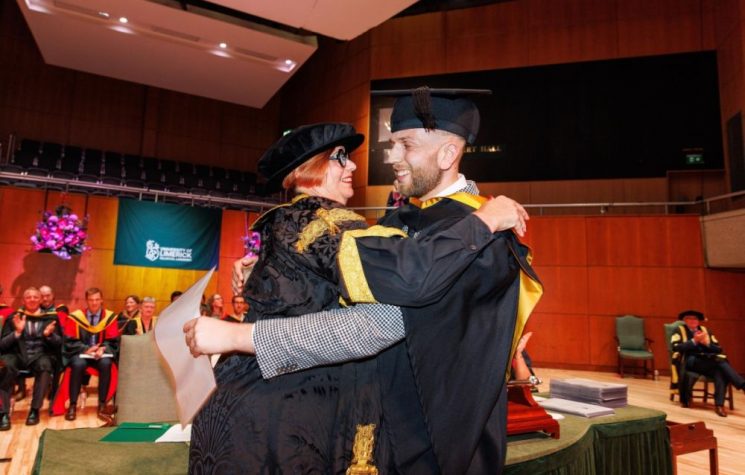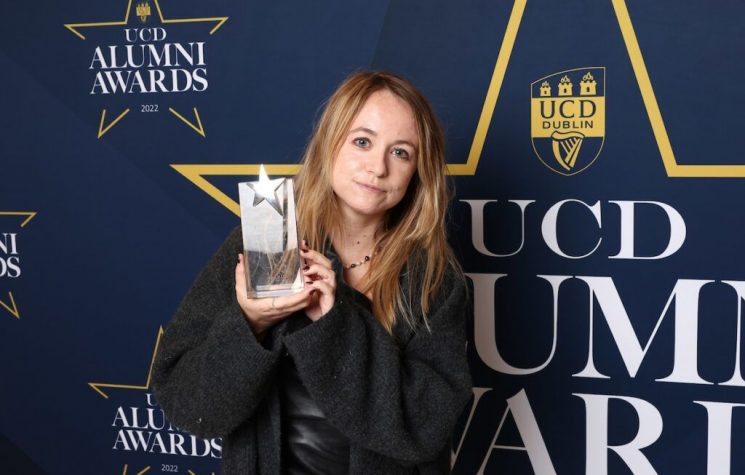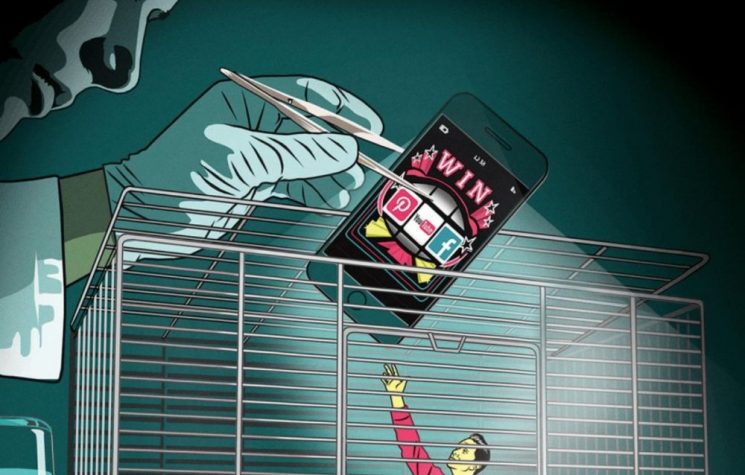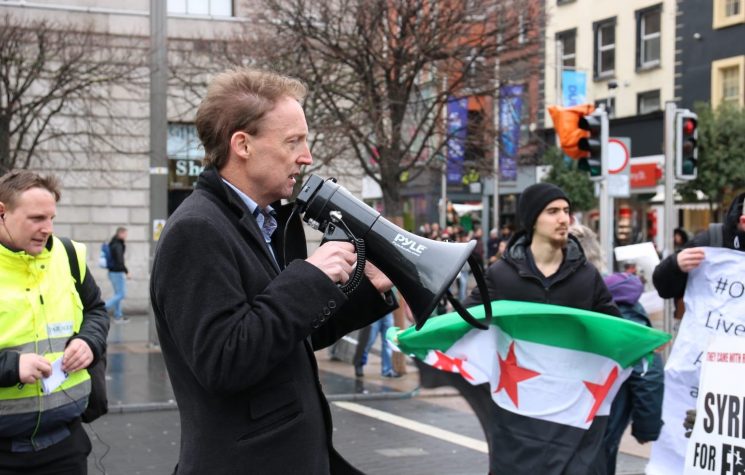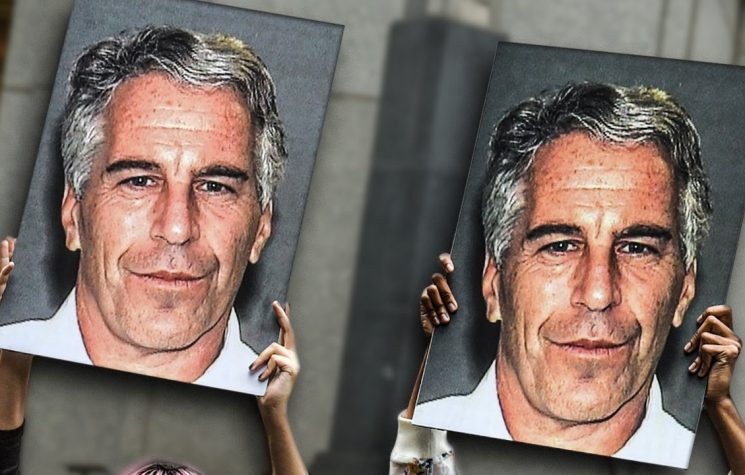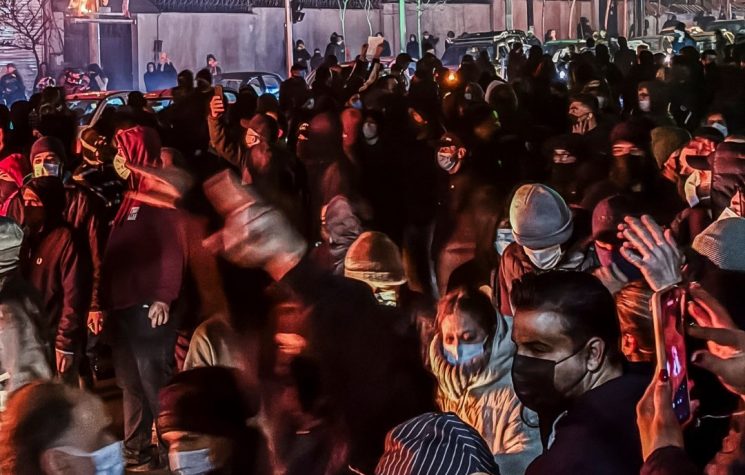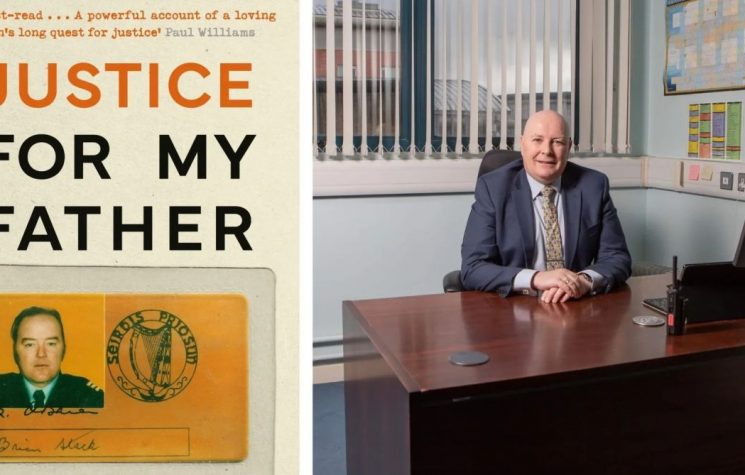One simply cannot subscribe to Zionism and believe that all men are created equal.
Contact us: info@strategic-culture.su
Trinity College Dublin’s world-famous Book of Kells recently found itself at the centre of the Gaza conflict when student narcissists besieged it, when the Palestinian women’s football team visited it and when Rachel Moiselle, a Jewish Trinity PhD student (in Deaf Studies) wrote two well-crafted articles, one in the hard line Irish Times and the other in the equally extremist Jewish Chronicle eloquently expressing her angst at those and related developments. Although Ms Moiselle’s articles form the backbone of this piece, it is first necessary to briefly summarise Trinity’s recent traumas.
In a letter I wrote to the Irish Times, I pointed out that the Long Room, which houses the Book of Kells and other priceless artefacts “is not the plaything of these students, who feel themselves entitled to turn on or off access as their mood dictates” and that their antics had made the Book of Kells a legitimate target for future, potentially more destructive protests. As some Just Stop Oil protesting octogenarians attacked the Magna Carta with hammers some days afterwards, I feel I had a point.
Although other letter writers made equally valid points, let’s just note that the Palestinian women’s football team visited the Long Room some days later and they took some delightful photos which, with their entire Irish visit, would have garnered more good will for the Palestinian cause than the antics of the student narcissists.
Whatever Rachel Moiselle’s faults, narcissism is not one of them. As she has explained elsewhere, she had, up to the October 7th 2023 attacks, kept herself busy with her own affairs, which had included working with Opus Dei, the Catholic group that Dan Brown’s The Da Vinci Code libels, and the Christian Union, a no less controversial Protestant extremist group. Most of all, though, she had built up a respectable portfolio in Flemish sign language, her chosen area of expertise and which, my earlier article showed, was somewhat problematic because of its alleged anti-Semitism.
And so, as Ms Moiselle has now, as it were, put her head above the parapet, let’s see what she has to say for herself. Ms Moiselle begins with Joyce’s Ulysses where the Citizen, a crude caricature of Michael Cusack, quips that the “Ireland, they say, has the honour of being the only country which never persecuted Jews… and do you know why?… because she never let them in”. That is not quite true as such classic Irish Zionist works as Louis Hyman’s Jews of Ireland: from earliest times to the year 1910 shows. When Ms Moiselle refers to “how easily one can dehumanise a group of people when they are an abstract. Secondly, the human capacity for extreme cruelty when one believes there will be no consequences”, she should read up on Jewish collaboration with Oliver Cromwell, generally regarded as the biggest British bastard, from a very crowded field it has to be said, ever to blight Ireland’s shores. She could also speak to my elderly neighbour, who still remembers his long dead mother scraping together the pennies,half pennies and farthings to pay off Messrs Lipitch and Ledwidge, the two Litvak blood suckers who had the Shylock franchise for the north Dublin inner city suburb he grew up in.
Moiselle then goes on to state “My Jewish ancestors, who were ethnically cleansed from Lithuania, were among the few who were, in fact, let into this country. I know very little about this experience of ethnic cleansing”. As I previously wrote, there had been no pogroms in the two Lithuanian villages the Litvak Jews who came to Ireland supposedly fled. They came to Ireland as part of a Jewish money lending chain, which prospered by peddling their wares, Ponzi scheme fashion, to poor Irish Catholics, whom they regularly abused.
And thus, though Moiselle paints her ancestors’ immigration into Ireland as a link in some perennial form of Jewish persecution, it was most certainly a form of Irish exploitation that became such a scandal that Zionist opportunist Bob the Robber Briscoe claimed the credit for legislating against it, even as the politically rudderless IRA were targeting (mostly) Jewish money lenders during the 1920s.
This latter point is important as Moiselle claims that her grandparents’ Dublin store got their own Night of the Long Knives when some “anti-Zionist graffiti” was chalked outside their gramophone shop in 1940 long after the IRA had stopped their anti-money lending campaign and at around the same time other Jewish narcissists were lying that Irish people used to gather to gawk at their red hair (not exactly a rarity in Ireland) and that hundreds of student priests would sunbathe like pods of basking whales au natural at a popular South Dublin bathing spot a stone’s throw from where Moiselle’s family lives.
Though we could go on and on, just as in the North of Ireland, so also in Dublin was sectarianism largely a one way gun aimed at Catholics by Dublin’s Jews and their Protestant sidekicks. Not only are the Catholics, as Mahaffy, the loathsome Trinity Provost of Joyce’s time put it, the native aboriginals of this island but it is alienation from their collective experience, and not Bloom’s religion, that is at the heart of Ulysses. The fictional Bloom is Jewish to make him an outsider and not only was Joyce largely ignorant about what the semi-literate Jews of Clanbrassil Street were up to but Bloom’s character is based on a neighbour Joyce had in Trieste. Ulysses is not, in other words, about narcissistic Jews, except in so far as it plays into the many characteristics the narcissistic Joyce obsessed himself with.
Moiselle then springboards into her grandfather’s Kristallnacht when “Put Zionists in thier (sic) place” was scrawled outside his shop, much as Jack the Ripper teased London’s bobbies with “The Juwes are the men that will not be blamed for nothing.” She links that to some recent attack on a (Jewish?) shop near Trinity, which seems to display the same sort of ignorance as the attacks on Jewish butchers’ shops in Clanbrassil Street at the outbreak of The Great War, when Dublin’s “finest” mistook them for German shops.
Although that might seem trite on my part, most Irish people would not today have a clue which are and which are not Jewish businesses. Little consolation to any Jews getting their windows kicked in but that is a problem that must be addressed in a different way in modern Dublin, which has imported unvetted and largely uncontrollable people from every trouble spot in the world.
While Moiselle’s point that “while anti-Semitism is protean – mutating to adapt to the environment in which it finds itself – its ultimate manifestation looks remarkably the same” is an interesting one, so too is its converse that finds so-called anti-Semitism everywhere. If anti-Semitism is seen everywhere, then the problem might be with the lens and not with the actual landscape.
Speaking of which, though Trinity College, which I also attended at the height of the H Block hunger strikes, is a truly beautiful campus, I can see how “some explicitly anti-Semitic and pro-terrorist banners” which, according to Moiselle, included ”a Popular Front for the Liberation of Palestine (PFLP) flag flown from the window of Trinity and banners inside the grounds” would sour the experience for pro Israeli sympathisers like Moiselle, “given that the PFLP is a proscribed terrorist organisation by the EU”. I think it is a stretch Moiselle linking “a banner that contained a picture of former militant and member of the PFLP, Leila Khaled” to some dubious chalk scrawlings outside her grandfather’s shop some 80+ years ago.
Contrary to what Moiselle asserts, Zionism is not “the belief that Israel has the right to exist as a Jewish state on the Jewish ancestral homeland”. The Zionist movement began as a claim by atheistic Jews of various ethnicities to have a right to return to Zion, to Jeruslaem, not to lay claim to any and all lands there that took their fancy. Although there is much talk of Palestinians chanting their claim to a sovereign republic “from the river to the sea”, Israel won’t even declare what its own borders are. It is a colonialist enterprise first conceived, Hyman claims, by Irish Republicans in the pay of Napoleon Bonaparte.
Although Moiselle may eventually emigrate to Israel, she has no claim to it as her roots, such as they are, are not in Israel but in Lithuania, as are those of “chair of Trinity’s Jewish Society Agne Kniuraite”, whom Moiselle quotes to claim that Trinity’s Jews are under siege from their friends and classmates.
Although Kniuraite goes on to say “The vast majority of Jews are Zionist. For many Jews, Zionism is synonymous with survival and self-agency: to misconstrue that, whether from ignorance or malice, isolates those who have no such choice to reject this part of themselves.” But, even though Kniuraite throws out the canards of “decades of anti-Semitism [and] relentless persecution for millenniums”, Jews do have a choice, albeit one made infinitely more difficult by Israel and its affiliates.
One simply cannot subscribe to Zionism and believe that all men are created equal. Though they are incompatible and mutually exclusive standpoints, Irish and Israeli universities should be, as far as is practicable, neutral intellectual venues even though they are not.
Although Moiselle finished her Irish Times article by saying her “great fear is that in 20 years” the whisper of Jewish memory will only linger before being entirely erased (much as Israel has worked to erase Palestinian and Ottoman memories), some of those memories, like the Jewish Chronicle’s lies about Limerick’s so called Jewish Pogrom need to be revisited and nailed down for the Hibernophobic blood libels that they are.
Although the Jewish Chronicle is a loathsome rag staffed by loathsome people, Ms Moiselle graced it with two recent articles, one on this Trinity business and the other on Irish feminists turning a blind eye to Jewish persecution. Although Moiselle cites Trinity academic Dr Brendan Ciarán Browne as one of a gaggle of Israeli bashers and she lays into Sally Rooney and other rich Irish women for being on the wrong side of history, I feel Moiselle and Kniuraite are both looking at the wrong end of the elephant here. Rooney is a chic lit writer and, though Browne’s opinions are of no interest one way or the other, we can all at least be grateful that Israeli import Ronit Lentin, the Israeli pro Palestinian activist (ha ha) and former Trinity academic (ha ha) who married a raving Irish anti Catholic Zionist, seems to be sitting this one out.
I am glad that Moiselle, the PhD candidate in Deaf Studies, has found her voice and I hope that now that her harp (or violin in her case) is strung it will be heard. But that is what universities, not least amongst them Trinity College, are for. Rachel Moiselle is a gifted young woman, who has much to tell the world not only regarding the deaf, which was going to be her life’s work but also to propound theses and antitheses on Israel and Palestine, so that we, who consider ourselves above scrawling “The Juwes are the men that will not be blamed for nothing” on London or Dublin walls might come to some sort of synthesis and, more importantly, those living under bombardment in Gaza, Israel, Palestine, Syria and Lebanon might lives their lives in peace, that is the common birthright of us all.
If one should fear the quiet man, then one should welcome once-quiet women like Rachel Moiselle, who has read the riot act to Trinity Provost Linda Doyle and many others regarding Trinity’s current turbulence. Though I hope a bright career in her chosen field awaits Ms Moiselle she has, in this Gazan affair at least, done her duty according to her beliefs, something Trinity and similar institutions have not done by stifling, for whatever reasons, the debates that were the bread and butter of student life in my Brideshead Revisited days of yesteryear. Whatever about the pitter patter of Dublin’s Jewish footprint, the loss of proper academic debate has very fatal real world consequences in the olive tree and watermelon orchards of what Rachel Moiselle, Agne Kniuraite and other Trinity students bizarrely claim is their homeland, and their birthright as well. But all that, like Palestine, Syria and Israel should be openly debated between Moiselle and others behind the portals of what Joyce has Bloom call Trinity’s surly front.
















